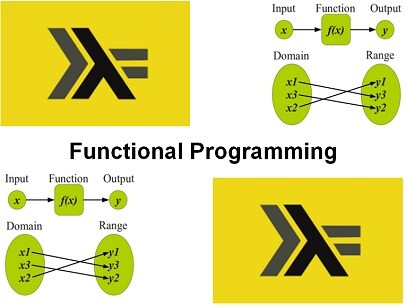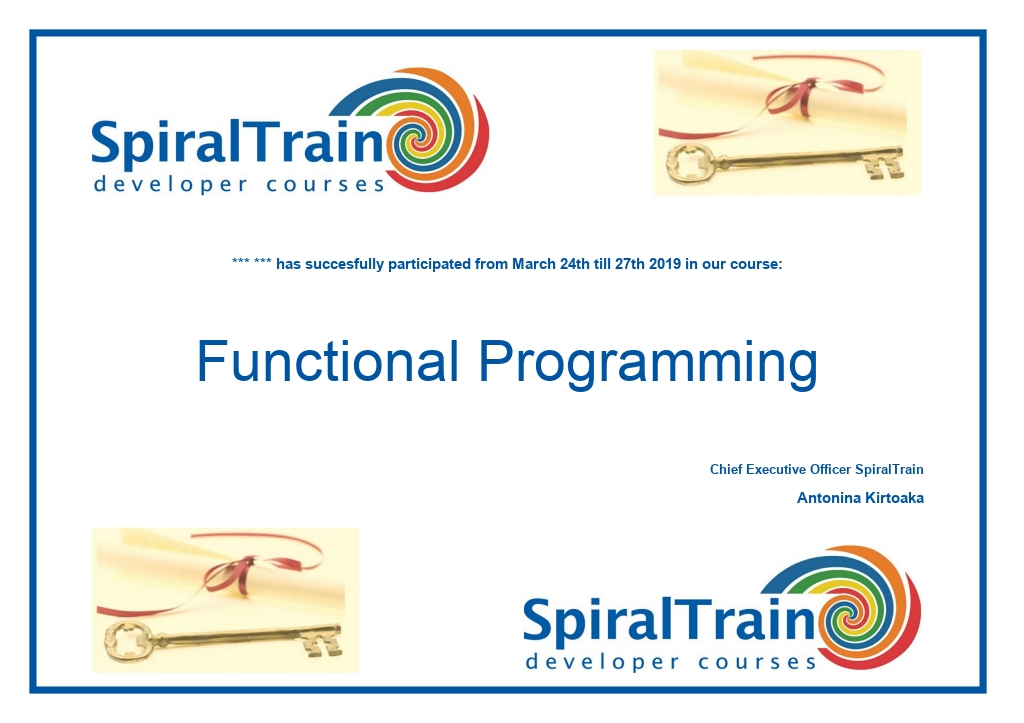-
Learning by doing
-
Trainers with practical experience
-
Classroom training
-
Detailed course material
-
Clear content description
-
Tailormade content possible
-
Training that proceeds
-
Small groups
In the course Functional Programming the basic principles of functional programming are discussed and illustrated with examples. In addition to object-oriented programming, functional programming is an important trend in the development of computer science.
The course starts with a discussion of the background of functional programming in the lambda calculus. In the functional programming paradigm a program is built from functions that perform operations on the arguments.
Modern languages such as Java, Python, Scala and JavaScript are equipped with functional features but are not entirely based on them.
Programming languages based entirely on this paradigm are Erlang, F♯, Haskell, Lisp and ML.
The course covers how functions do not cause side effects in purely functional programming languages. These are effects that affect more than the result of the function, such as changing a global variable. Variables that serve as an accumulator, counter or control variable have no place in a functional language.
Also attention is paid to characteristic functional concepts such as immutable data, clojures and map and reduce algorithms.
Additionally the course Functional Programming covers the various types of functions such as first class functions, higher order functions and lambda functions.
Finally the discussion of other functional terms such as Generators and Iterators, Fold Expressions, Memoization and Monads is on the agenda.
The course Functional Programming is designed for individuals who want to learn the principles of functional programming and to apply this knowledge in languages with functional aspects.
To participate in this course experience with software development and basic programming skills are required.
The theory is discussed on the basis of presentations. Demos are used to clarify the concepts. Examples in different languages are used to illustrate the concepts. The theory is interspersed with exercises.
Participants receive an official certificate Functional Programming after successful completion of the course.

Module 1 : Intro Functional Programming |
Module 2 : Functions and Style |
Module 3 : Map and Reduce |
|
What is Functional Programming? Paradigm Origins Lambda Calculus Absence of side effects Immutable Data and Keeping State Maintenance Benefits Functional Languages Erlang an Clojure Haskell and JavaScript Support in Python and Java |
Functional Style Imperative Programming Declarative Programming First Class Functions Functions as Parameters Functions as Return Values Pure Functions Anonymous Functions Higher Order Functions Recursion |
Replace Iteration Map Parameters Function and Collection Anonymous Functions Lambda's Reduce to Single Value Reduce Parameters Benefits Map and Reduce Filter and Find Function All and Any Function |
Module 4 : Pipelines |
Module 5 : Other Functional Concepts |
|
|
Combining Functions Parallelism Composition Efficiency Issues Referential Transparency Tail Call Optimization Currying Lazy Evaluation Determinism |
Generators and Iterators Fold Expressions Memoization Monads Strict Evaluation Type Systems Non-strict Evaluation Evil of Shared State Thread Safeness |
